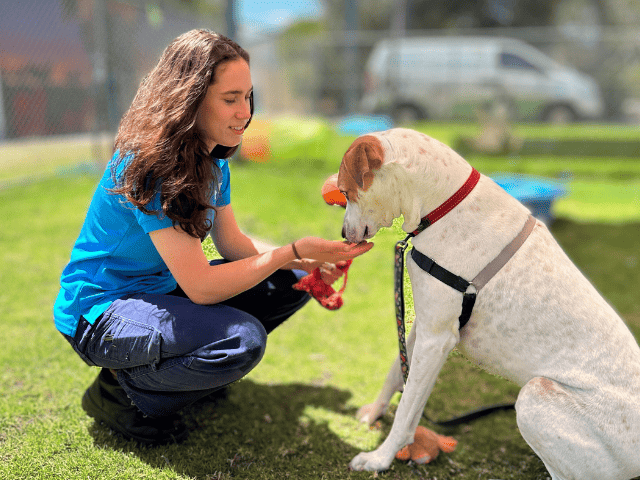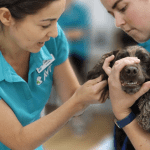Have you been working in the same job or career for years and are considering a future caring for animals?
Making a career change is often a significant decision, more substantial than merely seeking a new employer in the same line of work. However, many people successfully make the change once they’ve had a chance to figure out what they really want.
For many people, going into animal care is the passion-fueled career change they have always dreamed of, whether working in animal welfare as an animal attendant, helping nurse the sick and injured as a veterinary nurse, or attending to zoo animals as an attendant.
If you’re thinking about making a major career change, we suggest you stop and ask yourself the following five questions. This will help you make the right decision for all the right reasons.
1. Is a career change to animal care the right thing for you?
The first vital question to ask yourself is why you’re craving change. Many people get frustrated and bored if their current work isn’t fulfilling or rewarding. Similarly, in a situation where they are constantly over-stressed, overworked, or faced with conflict.
Before you make a change, make sure you contemplate whether it is your current workplace, the people you work with, your routine, or the job at hand.
If it’s the job at hand, and you’re certain you want to make a change, then you may well be ready for a new direction. If you have a genuine love and interest in animal care and welfare, then working with animals may be a great direction for you.
We always say to those contemplating change, simply ask yourself the question, “How would you feel if you never did your current type of work again?”

2. What do you want to do instead? Are you passionate about a career change?
If you are feeling unfulfilled and are ready for change, the next question to ask yourself is, ‘What do I want to do instead?’
Is there a career or area of interest that your passion is leading you toward? This is often the case when people are drawn to animal care positions after building a career in another field.
You may have witnessed and been inspired by the care given to stray and neglected animals by trained animal care workers who rescue and provide for them. Perhaps you always wanted to be a veterinary nurse, but your career took you in other directions in your early adulthood.
Making any career change can be confronting, but if you are passionate about the choice, and your choice is in the area of working with animals, and you are committed to working hard, building new skills, and learning new things, this might be the perfect change for you.
When you have the passion that often drives “animal people,” you will likely be able to do whatever it takes to make a career change happen.
3. What are the opportunities for jobs in animal care?
Next, it’s a great idea to do a little research to find out more about the job market you are diving into and the types of positions available in your local community.
We recommend watching one of our recent videos: The most popular Jobs in Animal Care.
You can also use tools such as the Jobs and Skills Atlas. This website lets you view the employment rates for professionals across a broad range of industries. In the animal care industry, one such example is a veterinary nurse. Currently, veterinary nursing enjoys a low unemployment rate — meaning that vet nurses are very likely to find a position – and the demand for vet nursing positions continues to grow annually as the shortage gap widens.
4. What do I need to do to make a successful transition to animal care?
For many roles in animal care, you will likely need to undertake some study to learn the foundation skills and knowledge required to work with animals. A majority of industry professionals will recommend obtaining a nationally recognised qualification, as these qualifications are often mandatory requirements requested during the hiring process and in job advertisements.
We also recommend reading our post about: Starting your Career Working with Animals.
5. Does your new career meet your salary expectations?
Finally, don’t forget to compare the amount of money you will potentially make in your new career versus what you are making now. Many people stay in their careers because they can’t afford to make a big change until they build up household savings. If you’re moving down from a high-paying role, you need to know if this change in your career will impact your household spending.
Find out how salaries of different animal care jobs are likely to look and how that compares to your current salary. Many people will be willing to step down to have a more fulfilling career where they are passionate about their work. If you’re currently in a low-paying job with little upward mobility, you might find yourself in a much better position as a trained animal care provider.
The most important thing is to be prepared for how your finances may change with your career change.

Are you ready to make a major career change with new training, new roles and a whole new exciting industry in which to learn?
If you’re passionate about the change you are making and ready to throw yourself completely into the transition between occupations, then the answer could very well be, yes.
Contact us today to find out more about the training and preparation necessary to follow your dreams to work with animals and become an animal care professional.
About AVT
We have been training animal care, animal behaviour and training, equine care and veterinary nursing students for over 25 years in Australia. Students who undertake AVT courses range from high school-aged students just starting their pre-vocational journey right through to mature-aged students seeking an alternative career path. Graduates are highly respected and sought after by industry professionals, businesses and organisations. If you want the background knowledge and skills to help you secure your career in the animal care industry, check out our qualifications here or gain new skills by studying one of our short courses.
Courses you may like
Choose a course
Follow your passion and get a dream job!
About Our Courses
Choose from our range of courses
Starting out
ACM20121 Certificate II in Animal Care (Online)
Studying Online
Animal Care Online Course
Perth Based
ACM20121 Certificate II in Animal Care (Vet Nursing Pathway)
About Vet Nurse Pathway
Vet Nursing Pathway
Perth Based
ACM20121 Certificate II in Animal Care (Health & Welfare)
Dogs' Refuge & Cat Haven Program









